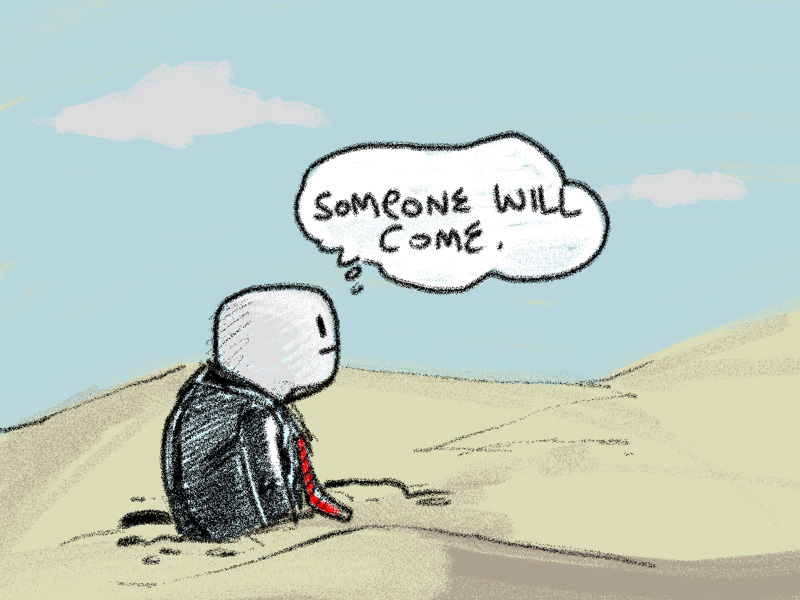Science, Stocks and Superstition
Courtesy of Tim at The Psy-Fi Blog
 Unreliable Science
Unreliable Science
As we’ve seen – repeatedly – people aren’t particularly good at overcoming the behavioural biases built into our nature by evolution. There’s no real reason we should be – computing the statistical probability of an above average return on the stockmarket over a twenty year period wasn’t of much value for most of human history. This was partly because twenty years was more than the average lifespan of a proto-human but largely because no one had yet got around to inventing money or stockmarkets or stocks. Or ‘years’.
If these biases are inherent and cause us to do stupid things around finance we might expect that they’ll appear in other areas as well where humanity has only recently started to apply its higher cognitive functions. So it’s unsurprising that our basic intuitions about science are about as reliable as those we have about finance. To whit: not reliable at all.
Greek Geeks
Science has been around a lot longer than modern financial theory. The Ancient Greeks developed many concepts that aren’t out of place in the modern pantheon of university science faculties – atomic theory, planetary orbits and toga parties amongst them. Unfortunately they failed to marry their scientific insights to a stable economic system and much of their knowledge was lost for the best part of a millennium. The lesson being, presumably, that disenfranchising women and relying on slave labour is a poor way of building a stable society. Global corporations take note.
 During that lost thousand years or so the only real legacy of Greek knowledge in the Western world was a smattering of Aristotle, who was a bloody good thinker but a bit weak on stuff like planetary motion and mathematics. Somewhere along the line Aristotle’s ideas got mixed up with Christianity and resulted in the odd position of the Catholic Church defining God’s word on the basis of the scientific writings of an atheistic Greek who died before Christ was born. We can blame Thomas Aquinas for that one.
During that lost thousand years or so the only real legacy of Greek knowledge in the Western world was a smattering of Aristotle, who was a bloody good thinker but a bit weak on stuff like planetary motion and mathematics. Somewhere along the line Aristotle’s ideas got mixed up with Christianity and resulted in the odd position of the Catholic Church defining God’s word on the basis of the scientific writings of an atheistic Greek who died before Christ was born. We can blame Thomas Aquinas for that one.
The period known as the Renaissance – the rebirth – was marked by a remarkable rediscovery of Ancient Greek thought. Some of this came from the Muslim world, where many ideas and writings had been sustained through the European Dark Ages, and some of it from the libraries of monasteries remote from barbarian incursion where scribes had been dutifully and ignorantly copying scrolls for centuries. Suddenly there was an explosion of ancient knowledge raining down on a world ripe for new ideas.
Childish Superstition
Yet, it’s impossible to believe that this sudden rediscovery of ancient science could wipe out the legacy of evolution. Science always has to be learned, it never comes naturally. Just like the basics of investing the concepts of science are not comfortable to the human mind, they go against the grain and for the vast majority of untrained lay people are foreign and even slightly chilling in their nature. The concept that every idea has to be exposed to public scrutiny, debated and even ridiculed before being accepted doesn’t sit easily with most of us.
In fact, our very survival may depend upon our non-scientific nature. How many amongst us didn’t experience fear of monsters and the supernatural when we were little? That’s easily explicable as an evolutionary adaptation designed to keep us near to our parents in an environment when a stray step could see us eaten by real monsters. Bruce Hood, in Supersense, for instance, reasons along these lines – that the adult human’s propensity for believing in the supernatural is a development of the child’s natural ways of reasoning about the world. As he points out, even highly educated people often believe in the supernatural: this doesn’t make much sense unless it’s somehow built into the fabric of our beings.
 Of course, if superstition and difficulties in thinking in logical and scientific ways are inherent to our very beings we should see similar effects in financial markets. We should see evidence of people behaving in a stupid, irrational and wholly ridiculous way for no reason other than that’s the way that people behave. This is to go beyond people responding irrationally to the signals of the markets to them responding irrationally to absolutely nothing relevant to the markets whatsoever.
Of course, if superstition and difficulties in thinking in logical and scientific ways are inherent to our very beings we should see similar effects in financial markets. We should see evidence of people behaving in a stupid, irrational and wholly ridiculous way for no reason other than that’s the way that people behave. This is to go beyond people responding irrationally to the signals of the markets to them responding irrationally to absolutely nothing relevant to the markets whatsoever.
Eclipsed Stocks
Naturally evidence for such behaviour exists: researchers are nothing if not diligent in looking for new ways of spending research grants. Gabriele Lepori in "Dark Omens in the Sky: Do Superstitious Beliefs Affect Investment Decisions?" is the latest in a long line of researchers who’ve looked at the effects of good old superstition on stockmarkets and has shown that markets respond to the imminent arrival of a scientifically predictable eclipse by going into a tailspin, from which they rapidly recover when it turns out the world hasn’t ended. Again.
There is some rationale behind this. As Lepori explains:
"People tend to turn to superstitious practices when dealing with outcomes that are important to them and facing conditions of high uncertainty, competition, and stress"
“High uncertainty, competition and stress” could almost be a job description for many of the financial professionals involved in stockmarkets. It’s hardly surprising that they seem to be highly superstitious and inclined to odd behaviour such as possession of lucky bears, lucky ties or, in one rather distasteful anecdote, lucky underwear. Understandable this may be but you’ve got to ask yourself: do I really want to entrust my future to someone who’s worn the same underpants for a month?
 Built to be Irrational
Built to be Irrational
Mostly economists are working on one of two theories. Either humans are basically rational economic theorists and their errors are those of computational accuracy or we’re behaviourally biased and therefore behave irrationally but in a predictable fashion at a statistical level. It’s possible to discern the two sides of economics gradually moving to an accommodation where rational man is so bedevilled by the shortcuts taken by the brain that the result looks like the outcome of behavioural analysis.
However, there’s a third possibility. Maybe people are built to be irrational and their investing approaches are driven by this. Maybe the behavioural biases we’ve been discussing aren’t the main factors that drive the way people deal with stockmarkets. Maybe human irrationality goes way beyond the obvious things that researchers are looking for?
People’s lack of understanding of science is daunting – this study from the Californian Academy of Sciences recently suggested that most Americans can’t pass a basic science test. If the world’s most advanced nation can’t do better than this what hope for the rest of us? So if science is the dominant mode of thought across the planet and has lifted billions of people out of total poverty but the vast majority of people don’t understand it and would rather wear lucky pants and consult astrologers where does that leave investing, a much less well understood approach to organising the world yet one that attracts vastly more practitioners?
Insensible and Irrational
There’s little doubt that behavioural biases affect investors most of the time. There’s equally little doubt that it’s the same behavioural biases that cause the runaway feed forward processes that lead to booms and subsequent busts. However, the idea that humans are driven by relatively sensible and predictable behavioural biases is at least questionable. It’s at least as likely that humans are inherently irrational and driven by demons in the dark designed to protect us from the real monsters that lurked in our history as we dwelt in predator infested environments.
The question is not why do markets behave irrationally but why do they ever behave rationally?
Related articles: Bulletin Boards Are Bad For Your Wealth, The Media, Fear and Stockmarket Manias, Don’t Lose Money In The Stupid Corner


